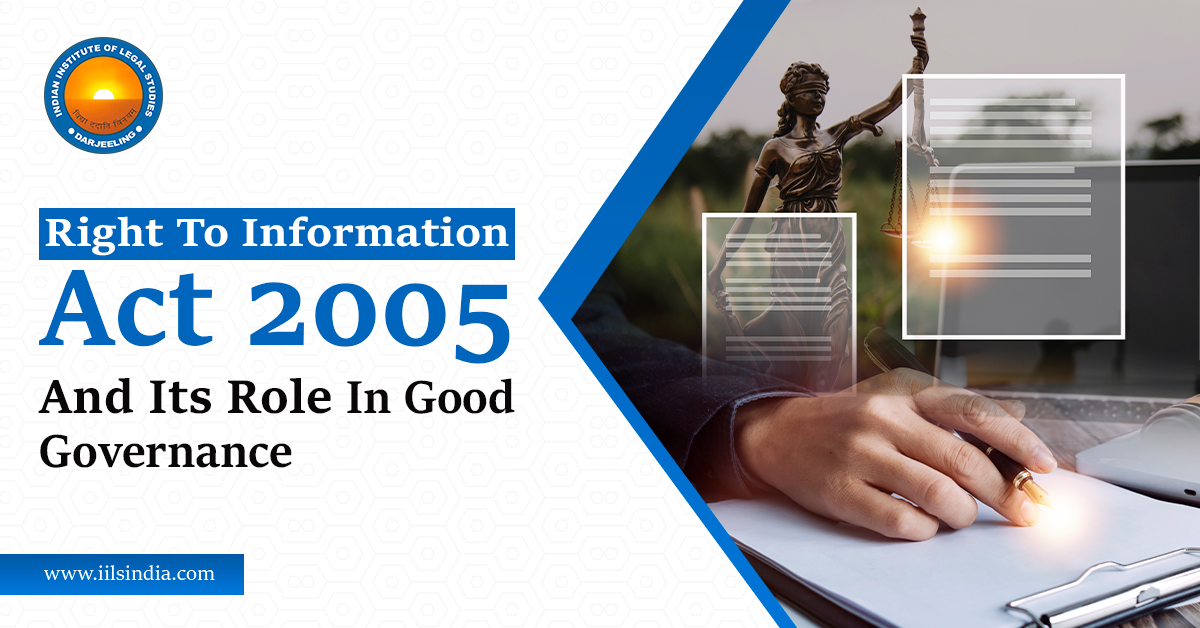Citizens in a democracy are entitled to knowledge on how the government and other administrative bodies operate, as well as the ability to voice their opinions. It encourages checks and balances, improves policymaking openness, and is necessary for a sound democratic administration. Citizens in a democracy are entitled to knowledge on how the government and other administrative bodies operate, as well as the ability to voice their opinions. It encourages checks and balances and improves transparency in the formulation of public policy. Information must be widely available for a good democratic administration. The freedom of speech and expression guaranteed by Article 19(1)(a) of the Indian Constitution allows us to openly express our opinions. In order to examine any policy, welfare program, or aspect of government and public authority operations, we must obtain the information required from the relevant authorities. Citizens’ role in government is increased and empowered by the right to information. The Right to Information legislation was passed by Parliament in 2005. Following this, the right to information became a statutory right. The judiciary has since interpreted the legislation in numerous cases to mean that it is a fundamental right as well because it is a part of Article 19(1)(a). As such, the act is particularly helpful in fostering good governance. The education of RTI is imparted in best colleges for law.
The public’s access to information encourages the openness and accountability of public authorities, and accurate and trustworthy information is essential for monitoring the administrative operations of the government and its agencies. One of the fundamental human rights is the right to information, which is stated in Article 19(1)(a) of the Indian Constitution. In order for citizens to live respectably, they must have access to pertinent information so they are knowledgeable about the procedures and policies of the government and administrative agencies. On October 12, 2005, the “Right to Information Act, 2005” took effect, superseding the “Freedom of Information Act, 2002.” This act gives citizens the authority to obtain any information from public authorities and is one of the revolutionary measures to check the activities and actions of public agencies. The RTI Act, 2005 defines the right to information as “the right to information accessible under this Act which is held by or under the control of any public authority” under Section 2(j). The RTI Act’s primary goal is to guarantee more accountability and openness in the operations of public authorities. It also imposes legal obligations on administrative bodies to uphold the unrestricted flow of information to the public. By strengthening the involvement of citizens in policymaking and enabling them to monitor how the government and its agencies are operating, this legislation advances the idea of democratic governance. Additionally, it prevents corruption and guarantees that the public is aware of how the government and its agencies operate.
Citizens must participate equally in the operations of the government and authorities in order for democratic governance to exist. Additionally, democracy grants citizens the freedom to examine government plans and initiatives designed to promote their welfare as well as the ability to openly criticize the government and administrative agencies for acting arbitrarily or improperly. The right to information is listed as a fundamental right in the Indian Constitution because, in a democracy, the free flow of information from public authorities to citizens is essential. The Right to Information Act of 2005 gave citizens full access to information about how the government and its agencies operate and encouraged open government. The best colleges for law also plays an important role in spreading awareness of the large benefits which RTI has to offer. Transparency, accountability, and responsiveness are necessary for democratic governance. Citizens can make informed choices about their representatives during elections by considering whether or not they have previously served the interests of the people, provided they have access to pertinent information about how representatives operate.

